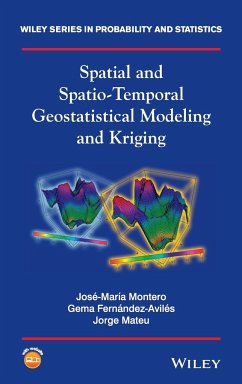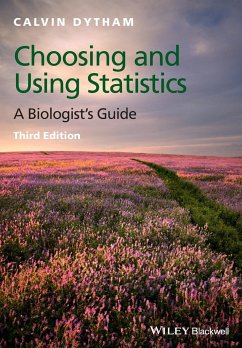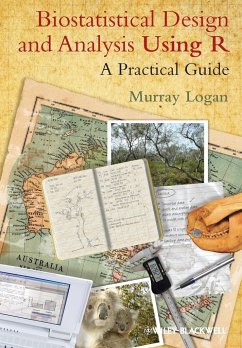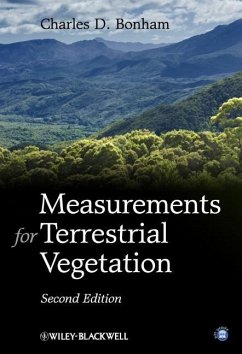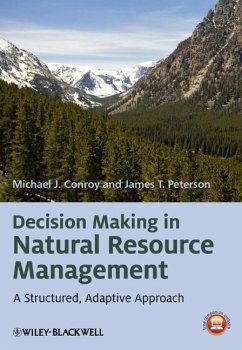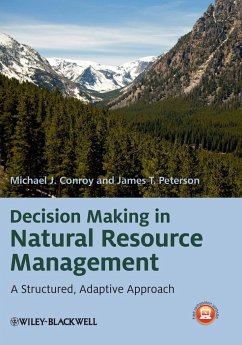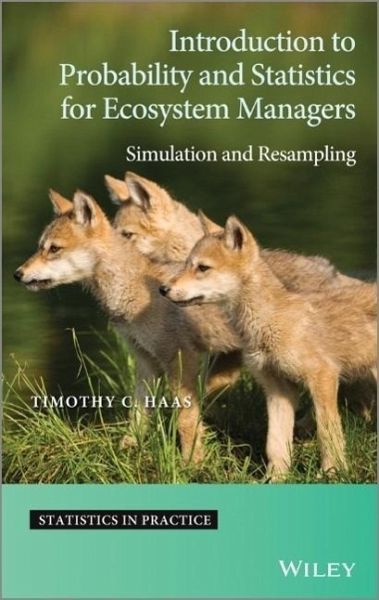
Introduction to Probability and Statistics for Ecosystem Managers
Simulation and Resampling

PAYBACK Punkte
45 °P sammeln!
Explores computer-intensive probability and statistics for ecosystem management decision makingSimulation is an accessible way to explain probability and stochastic model behavior to beginners. This book introduces probability and statistics to future and practicing ecosystem managers by providing a comprehensive treatment of these two areas. The author presents a self-contained introduction for individuals involved in monitoring, assessing, and managing ecosystems and features intuitive, simulation-based explanations of probabilistic and statistical concepts. Mathematical programming details ...
Explores computer-intensive probability and statistics for ecosystem management decision making
Simulation is an accessible way to explain probability and stochastic model behavior to beginners. This book introduces probability and statistics to future and practicing ecosystem managers by providing a comprehensive treatment of these two areas. The author presents a self-contained introduction for individuals involved in monitoring, assessing, and managing ecosystems and features intuitive, simulation-based explanations of probabilistic and statistical concepts. Mathematical programming details are provided for estimating ecosystem model parameters with Minimum Distance, a robust and computer-intensive method.
The majority of examples illustrate how probability and statistics can be applied to ecosystem management challenges. There are over 50 exercises - making this book suitable for a lecture course in a natural resource and/or wildlife management department, or as the main text in a program of self-study.
Key features:
Reviews different approaches to wildlife and ecosystem management and inference.
Uses simulation as an accessible way to explain probability and stochastic model behavior to beginners.
Covers material from basic probability through to hierarchical Bayesian models and spatial/ spatio-temporal statistical inference.
Provides detailed instructions for using R, along with complete R programs to recreate the output of the many examples presented.
Provides an introduction to Geographic Information Systems (GIS) along with examples from Quantum GIS, a free GIS software package.
A companion website featuring all R code and data used throughout the book.
Solutions to all exercises are presented along with an online intelligent tutoring system that supports readers who are using the book for self-study.
Simulation is an accessible way to explain probability and stochastic model behavior to beginners. This book introduces probability and statistics to future and practicing ecosystem managers by providing a comprehensive treatment of these two areas. The author presents a self-contained introduction for individuals involved in monitoring, assessing, and managing ecosystems and features intuitive, simulation-based explanations of probabilistic and statistical concepts. Mathematical programming details are provided for estimating ecosystem model parameters with Minimum Distance, a robust and computer-intensive method.
The majority of examples illustrate how probability and statistics can be applied to ecosystem management challenges. There are over 50 exercises - making this book suitable for a lecture course in a natural resource and/or wildlife management department, or as the main text in a program of self-study.
Key features:
Reviews different approaches to wildlife and ecosystem management and inference.
Uses simulation as an accessible way to explain probability and stochastic model behavior to beginners.
Covers material from basic probability through to hierarchical Bayesian models and spatial/ spatio-temporal statistical inference.
Provides detailed instructions for using R, along with complete R programs to recreate the output of the many examples presented.
Provides an introduction to Geographic Information Systems (GIS) along with examples from Quantum GIS, a free GIS software package.
A companion website featuring all R code and data used throughout the book.
Solutions to all exercises are presented along with an online intelligent tutoring system that supports readers who are using the book for self-study.




